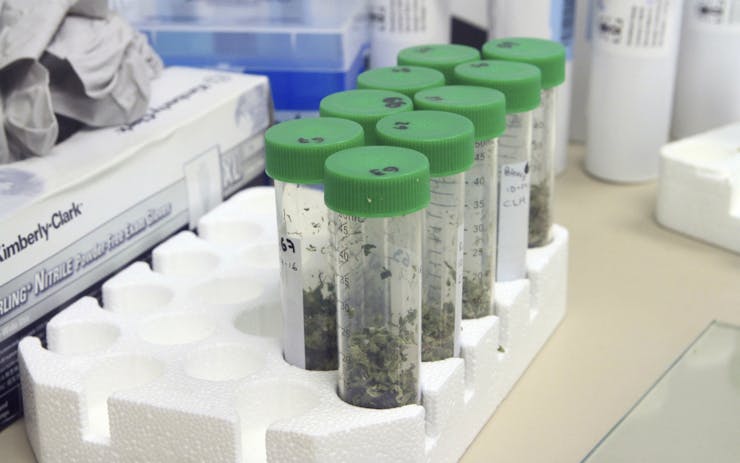More than seven years after Arizona legalized medical cannabis, the state may finally begin to require lab testing to identify mold, pesticides, and other potentially harmful contaminants.
Under a proposal from state Sen. Sonny Borelli (R-Lake Havasu), the state would require testing starting in 2019. The bill would mandate that products be analyzed for mold and other chemicals and that product labels disclose all compounds used during production.
“This is supposed to be medicine,” Borelli told a local CBS affiliate. “The patient has the right to know what’s in their medicine.”
The measure, Senate Bill 1420, has earned broad backing from lawmakers, with nearly the entire state Legislature having signed on in support. It now has 78 co-sponsors, including Republican and Democratic leaders in both the House and Senate. There are 90 members of the Legislature.
The bill would also reduce the state’s $150 patient-registration fee to $50.
Borelli said the bill would also require accurate labeling of THC content. “If they’re going to advertise 20% THC and it gets tested at 5%, they need to re-label,” he told CBS. The text of Borelli’s bill, however, makes no specific mention of potency, THC, or other cannabinoids. Nor does it set specific limits on contaminants aside from the requirement that a sample “does not include mold.”
To pay for the testing, the state would appropriate $2 million from its medical marijuana fund surplus, which currently has a balance of $35 million. The money would go to the Department of Agriculture, which could then conduct testing itself or contract the testing out to a qualified third-party lab.
The bill would also reduce the state’s $150 patient-registration fee to $50, with renewals priced at $25. Borelli said the higher fee could no longer be justified in light of the fund surplus.
Most states that have legalized cannabis for adult use have put in place some sort of testing protocol. But ironically, in states where cannabis is allowed only for medical use, testing is often voluntary, poorly enforced, or simply not done. That can put patients at risk, especially those with conditions that weaken their immune systems.
In California, for example, two leukemia patients who used cannabis developed severe lung infections due to a rare fungus. One patient died as the result. While the infections couldn’t definitively be connected to the cannabis they consumed, subsequent testing discovered the same fungus on cannabis purchased at nearby dispensaries.
“We never suspected cannabis use,” said Dr. Joseph Tuscano, an oncologist and researcher at the University of California, Davis, who published an article about the infections. “But after I interviewed the patient, one of the common links was the use of medical marijuana.”
Under the Arizona measure, medical cannabis product manufacturers would be required to list all the chemical agents used on that product. Samples of the product would then be collected by either the state or a third-party contractor and tested to be sure the results match the product label. The lab would also perform tests to look specifically for mold.
Shop highly rated dispensaries near you
Showing you dispensaries near“From an industry perspective I am certainly not opposed to it,” said Laura Bianchi, who heads the cannabis department at Scottsdale-based Rose Law Group and represents companies growing, distributing, and selling medical cannabis. “In fact I think testing requirements are an important component of any medical product.”
To prevent contamination during storage, the bill would also allow state regulators to inspect dispensaries and warehouses to ensure sanitary conditions.
Under state law, the Legislature needs to muster a three-fourths supermajority in both the House and the Senate. Borelli told CBS last week he’s “actually very confident we will be able to get this accomplished.”
The state Senate’s committee on government is slated to consider the bill on Thursday.
The Associated Press contributed to this report.





